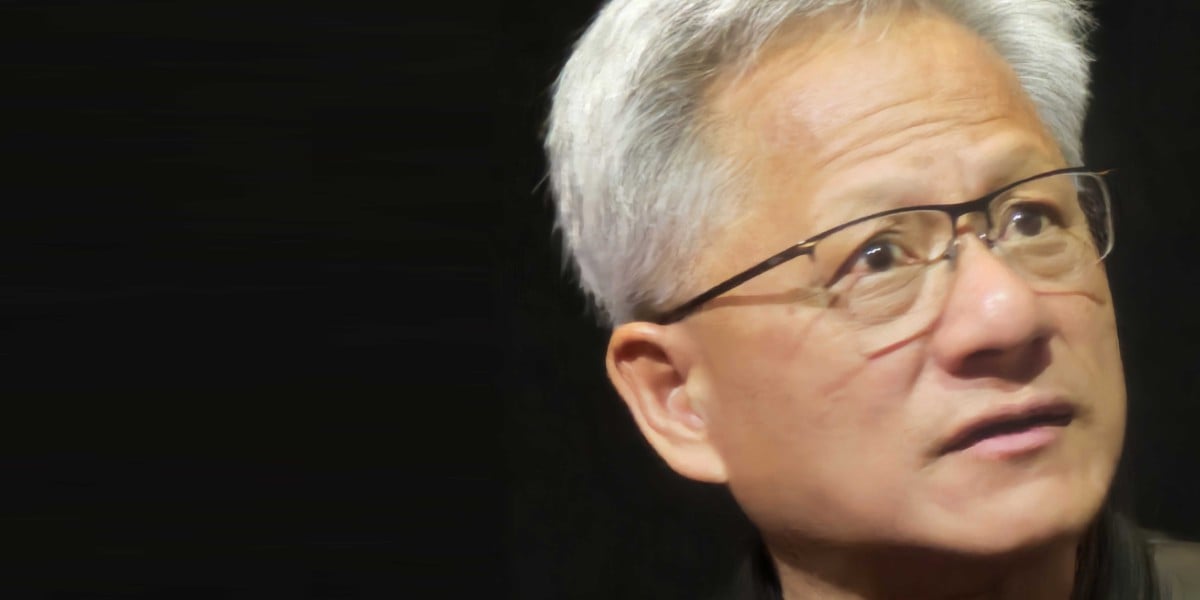Nvidia CEO Labels U.S. GPU Export Bans as 'Precisely Wrong' and 'A Failure'

Suggests that the global community requires China's AI experts to work on these chips so everyone can reap the benefits.
Computex The CEO of Nvidia, Jensen Huang, has stated that the U.S. ban on exporting his company’s top-tier accelerators to China is "exactly the incorrect approach" and represents "a failure."
During a Q&A session at the Computex conference in Taiwan, Huang expressed his displeasure with the Trump administration's choice to prohibit the sale of Nvidia’s H20 accelerators in China. He was concerned that this move would negatively impact Nvidia’s earnings and profits, thereby affecting their capacity to pay taxes and create jobs within the U.S.
He believes this policy could negatively impact humanity since approximately half of global AI researchers operate within China, where research outputs rank amongst the best worldwide. His aim is for these researchers to utilize Nvidia equipment so their advancements can benefit people globally.
“He mentioned that DeepSeek was developed using Nvidia technology,” then went on to call it “a blessing” because of the numerous optimization methods the firm employed for their R1 model.
When R1 made its debut, investors panicked, causing the stock prices of AI hardware companies to plummet.
Huang believes that the reaction misunderstood the scenario since AI has progressed beyond "one-shot" uses like employing generative AI to answer prompts—a process requiring minimal computational effort. In contrast, DeepSeek provides reasoning models that demand significantly greater computation. Huang argues that this shift led to an increase in overall computational needs by a factor of 100 to 1000 due to advancements stimulated by R1.
He contended that stopping Nvidia from making sales to China would result in researchers in the Middle Kingdom ceasing collaboration with the company’s technology. Additionally, this could prevent Nvidia users worldwide from benefiting from their advancements. Consequently, Nvidia might sell fewer products and consequently pay lower taxes.
Huang noted that Chinese companies are developing their own AI hardware, indicating that US policies have actually accelerated progress instead of hindering it. He stated that this makes the policy "a failure."
Haung stated that Nvidia aims to develop accelerators that adhere to U.S. export regulations. However, he mentioned, "We are unsure how to further downgrade the GPU architecture known as Hopper." He went on to say, "Our current focus is on serving the market effectively. The extent of degradation has been such that it poses significant challenges for us."
The CEO additionally expressed approval for certain policies under the Trump administration, particularly the shift in approach towards AI dissemination. This new stance allows the U.S. to export AI-related infrastructure to a greater number of nations. Huang noted that this change would facilitate Nvidia’s growth and enable American-developed AI technology to lead globally.
However, he believes that governments should take further steps to speed up the approval process for energy production initiatives—regardless of the energy source—to ensure that data centers have access to the necessary power for running AI tasks.
He also had faint praise for the Trump administration’s policy of building more onshore manufacturing facilities, by saying that the AI boom will create both enormous demand and an opportunity to build more products in the USA. However he also said it is “impossible to do all manufacturing onshore” and in numerous appearances at Computex has pointed out that Nvidia systems comprise over a million components sourced from manufacturers around the world.
During the Q&A session, Huang promoted Nvidia’s NVlink Fusion, enabling various accelerators from competing manufacturers to utilize Nvidia’s NVLink interconnect technology.
The CEO said Nvidia customers have been asking to use NVLink in more places, because in his view “UALink is not going so well”.
UALink is an interconnection specification created by a group of NVIDIA competitors. In April, they released the initial version but acknowledged that devices utilizing this technology won’t be available for at least another year.
Huang stated that NVLink Fusion will become popular as customers await UALink, yet he downplayed inquiries regarding the latter’s advancements and potential.
He similarly refuted claims that Nvidia intends to establish an R&D facility in China, stating that their current location doesn’t have enough room for such expansion.
The reason for needing new offices is that we lack sufficient chairs," he explained. "When one individual is typing, another must cease work.
Larger office spaces will consequently enhance Nvidia's efficiency.
"There will be additional restrooms, and the queues will be less lengthy," Huang stated, possibly indicating that certain deeply human issues persist beyond AI's capabilities to resolve. ®
Belum ada Komentar untuk "Nvidia CEO Labels U.S. GPU Export Bans as 'Precisely Wrong' and 'A Failure'"
Posting Komentar